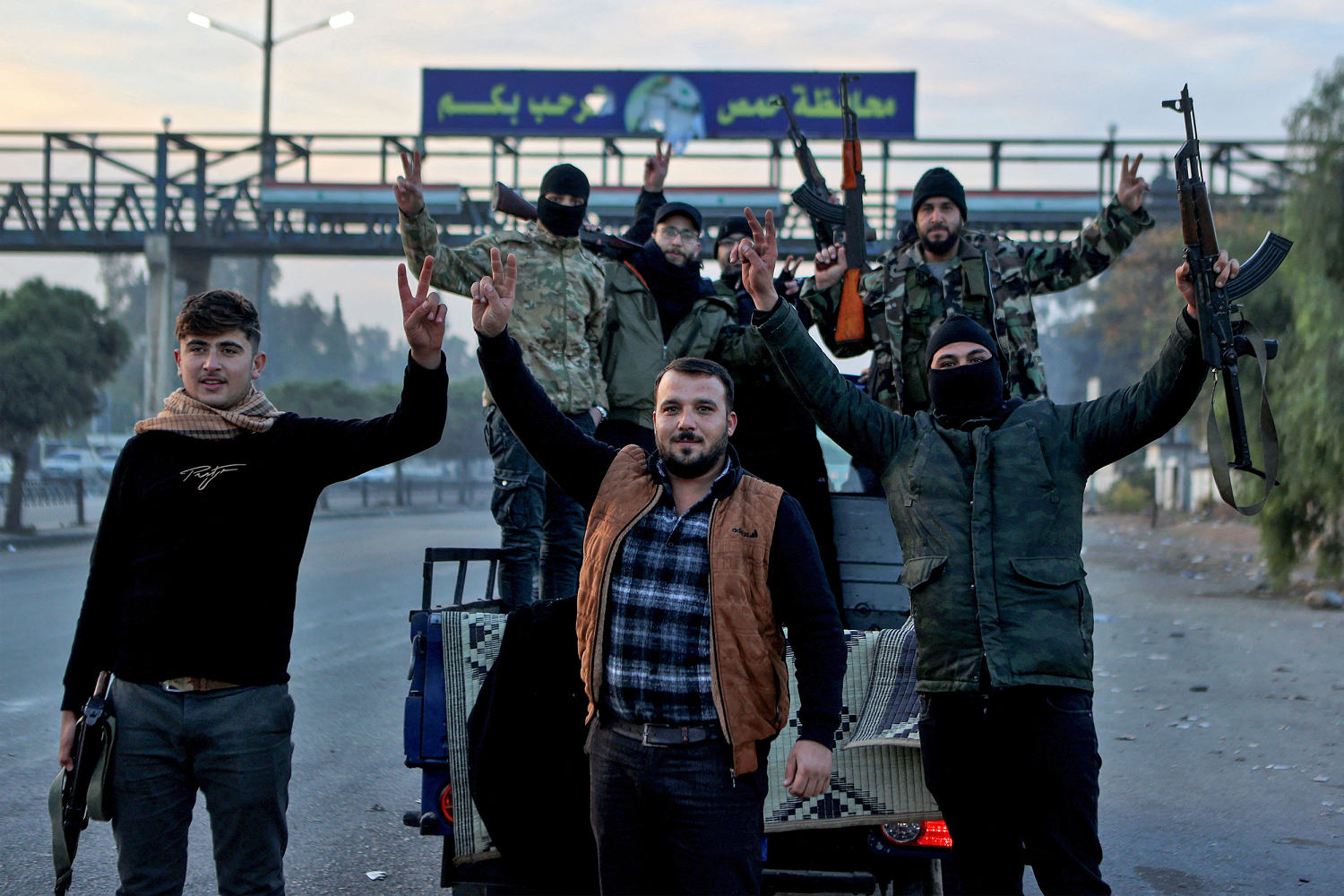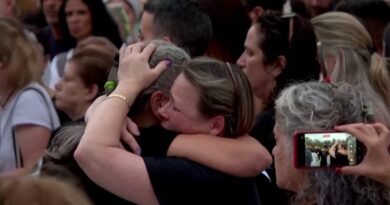Who is Abu Mohammad al-Jolani, leader of Syrian rebel HTS?

His group was working to reassure civilians and groups that had suffered persecution at the hands of extremists and jihadists throughout Syria’s decadelong civil war, he added. In Syria, Sunni extremism has left deep scars, and minorities, such as Christians, Alawites, Druze and Yazidis, have valid reasons to fear the rise of extremist governance.
“No one has the right to erase another group. These sects have coexisted in this region for hundreds of years, and no one has the right to eliminate them,” Jolani told CNN.
While Jolani’s stance appears to have evolved, it remains unclear whether the shift is genuine or simply a strategic rebranding.
For now, his leadership of HTS remains defined by military success, with the group growing into a formidable force against the Assad regime and its powerful backers, including Russia and Iran.
In under two weeks, HTS forces — along with an umbrella group of Turkish-backed militias — were able to capture multiple cities, including Aleppo, Homs and, finally, Damascus, forcing the fall of the Assad government.
“The expansion of units, along with large-scale indigenous rocket and missile production, has created a force that Assad’s regime has seriously struggled to defend against, let alone outmaneuver,” Charles Lister, director of the Syria program at the Middle East Institute, said in a post on X.
Still, the question remains: Can HTS can evolve from a militant insurgency into a legitimate governing authority in post-Assad Syria?
Burcu Ozcelik, a senior research fellow at the Royal United Services Institute, a London-based military think tank, said Syria faces “Herculean challenges” as the rebels try and transition into a government.
“There are no easy or immediate answers to what kind of Syria will emerge in the post-Assad future,” she said in a statement after Damascus fell to the rebels. “The new administration that emerges in Syria will need economic lifelines to rehabilitate and rebuild a country that has endured multiple cruelties since the start of the 2011 war.”
One of the most significant challenges will be navigating international relations given HTS’ current terrorist designation.President Joe Biden has already outlined continued U.S. involvement in Syria, without commenting on whether Washington would remove or reconsider the designation.
“We will engage with all Syrian groups, including within the process led by the United Nations, to establish a transition away from the Assad regime, toward independent, sovereign and independent … Syria with a new constitution, new government that serves all Syrians,” he said Sunday.
The United Kingdom has signaled it might consider removing the proscribed status of HTS.
“I think it will partly depend on what happens,” British senior minister Pat McFadden told Sky News on Monday.
A spokesperson for the German Foreign Ministry told AFP on Monday that it will judge HTS’ efforts to distance itself from its jihadist origins by its “treatment of civilians and especially minorities.”
HTS has already signaled its willingness to work with the international community on one if its chief concerns, namely how it intends to use Assad’s arsenal of chemical weaponry.
The group said Saturday that it had “no intention or desire to use chemical weapons or any weapons of mass destruction under any circumstances,” and that it would “cooperate with the international community on all matters related to monitoring weapons.”
While the future of HTS and Syria remains uncertain, Jolani is steadfast.
The rebel leader said Sunday there would be “no turning back” after toppling the Assad regime. In a statement broadcast on Syria’s state TV and translated by Reuters, Jolani said. “The future is ours.”




